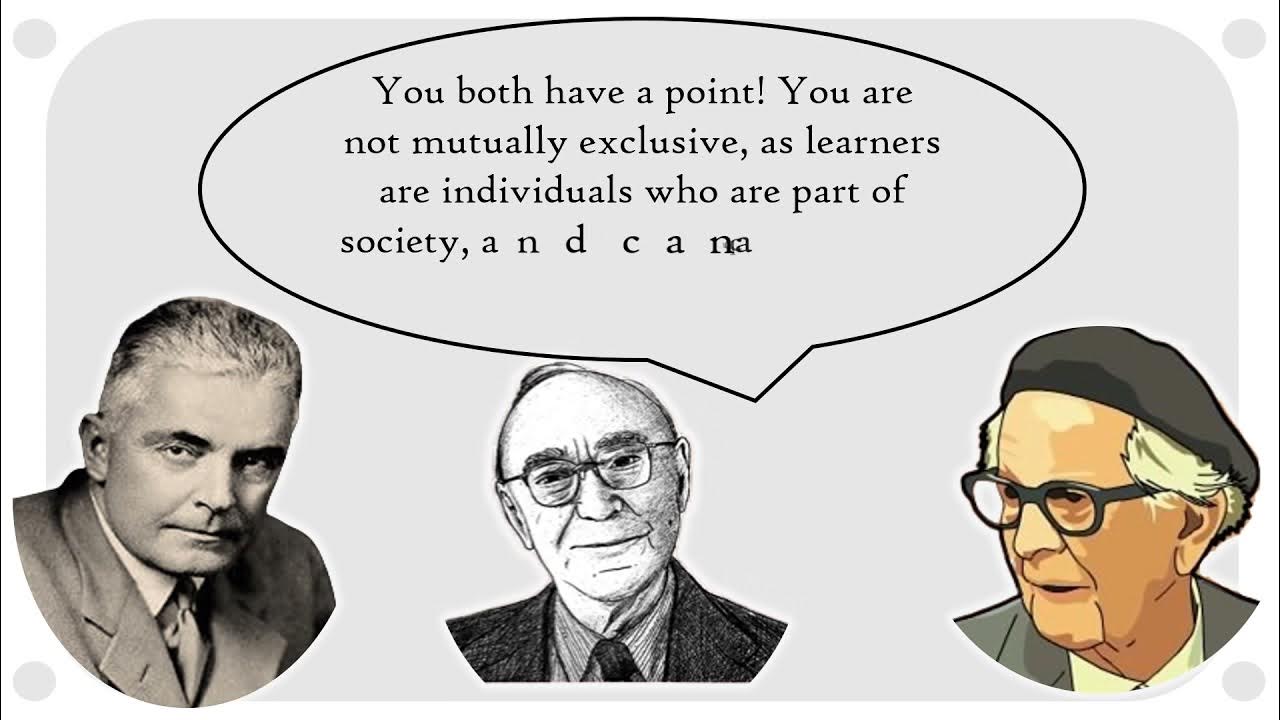Educational Psychology - Explained for Beginners (In 3 Minutes)
Summary
TLDRThis video explores six key focuses of educational psychology, emphasizing how individuals learn and effective teaching methods. It discusses the importance of tailored instructional strategies, the role of motivation in learning, and behavior management in classrooms. Additionally, it highlights the impact of emotional and social factors on student performance and examines cognitive development theories, such as Jean Piaget's, which inform age-appropriate teaching practices. Finally, the video addresses the significance of assessments in evaluating student progress and enhancing educational programs, offering insights into fostering an optimal learning environment.
Takeaways
- 😀 Educational psychology focuses on how people learn and the best teaching practices.
- 📚 Instructional methods should be tailored to individual learning needs to enhance retention.
- 🎨 Visual aids like charts and videos can help some students, while others may benefit from hands-on activities.
- 💪 Motivation is crucial for learning and can be intrinsic or extrinsic.
- 🏆 Techniques like goal setting and meaningful feedback can foster both intrinsic and extrinsic motivation.
- 🛠️ Behavior management strategies create supportive learning environments and minimize disruptions.
- 💬 Emotional and social factors significantly impact learning and should be addressed through support systems.
- 🧠 Cognitive development theories, such as Jean Piaget's, guide understanding of how thinking processes evolve.
- 📊 Assessments are vital for measuring knowledge, identifying struggles, and informing instructional strategies.
- 🔄 Effective evaluations can lead to curriculum improvements and enhanced teaching methods.
Q & A
What is educational psychology?
-Educational psychology is a branch of psychology that focuses on how people learn and the best practices for teaching them. It studies the interactions between learning and the environment, including social, emotional, and cognitive processes that influence learning outcomes.
What is the first key focus of educational psychologists?
-The first key focus is the development of instructional methods that enhance learning. Research shows that tailored instruction based on individual learning needs can significantly impact a student's ability to absorb and retain information.
How do educational psychologists view learning styles?
-Some educational psychologists believe that students learn best through visual means, like charts and videos, while others may benefit more from hands-on activities or written materials. There is ongoing controversy over the validity of different learning styles.
What role does motivation play in educational psychology?
-Motivation is crucial in learning and can be intrinsic (originating from within the student) or extrinsic (driven by external rewards). Educational psychologists study techniques to foster both types of motivation to enhance engagement and educational achievement.
What are some strategies to enhance intrinsic motivation?
-Strategies proven to increase intrinsic motivation include goal setting, self-assessment, and providing meaningful feedback.
Why is behavior management important in the classroom?
-Behavior management strategies help create a supportive learning environment, minimizing disruptions and promoting respectful interactions among students. Techniques such as positive reinforcement, clear classroom rules, and conflict resolution are essential tools for teachers.
How do emotional and social factors affect learning?
-Emotional well-being is crucial for cognitive development. Students experiencing emotional difficulties may struggle to concentrate and stay motivated, making emotional support through counseling and peer mentoring vital.
What are cognitive development theories?
-Cognitive development theories guide the understanding of how thinking processes evolve and influence learning. Jean Piaget's theory, for instance, explains how children perceive the world at different stages of development.
What are the four stages of cognitive development according to Piaget?
-According to Piaget, children move through four stages of cognitive development, each characterized by changes in understanding and abilities.
Why are assessments and evaluations important in educational psychology?
-Assessments and evaluations measure students' knowledge and skills and inform ongoing instructional strategies. Effective assessments help identify areas where students struggle or excel, allowing for targeted interventions and curriculum improvements.
Outlines

Cette section est réservée aux utilisateurs payants. Améliorez votre compte pour accéder à cette section.
Améliorer maintenantMindmap

Cette section est réservée aux utilisateurs payants. Améliorez votre compte pour accéder à cette section.
Améliorer maintenantKeywords

Cette section est réservée aux utilisateurs payants. Améliorez votre compte pour accéder à cette section.
Améliorer maintenantHighlights

Cette section est réservée aux utilisateurs payants. Améliorez votre compte pour accéder à cette section.
Améliorer maintenantTranscripts

Cette section est réservée aux utilisateurs payants. Améliorez votre compte pour accéder à cette section.
Améliorer maintenantVoir Plus de Vidéos Connexes

Le scienze che studiano l'educazione

Video Pembelajaran "Psikologi Pendidikan"

KONSEP DASAR PSIKOLOGI PENDIDIKAN [Psikologi Pendidikan]

VIDEO AULA - COMO A CRIANÇA APRENDE?

M.A.1st Year Education | Paper-2:शिक्षा के मनोवैज्ञानिक आधार | Part-1 | Education MA 1st Year 2022

THEORIES OF LEARNING: BEHAVIORISM, COGNITIVISM, & CONSTRUCTIVISM
5.0 / 5 (0 votes)
